Episodes
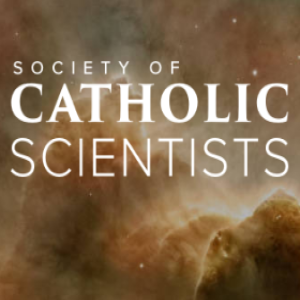
Monday May 13, 2019
Episode 059 – Origin Story: Society of Catholic Scientists
Monday May 13, 2019
Monday May 13, 2019
We welcome Stephen Barr back to the show. We are humbled and delighted to be your podcast hosts for the Society of Catholic Scientists Conference 2019 and hopefully beyond. In that context, today we interview Dr. Barr about his experience as a writer and speaker on the relationship between Catholic faith and science that led up to an eventful conversation between himself and Jonathan Lunine. He discusses the formation of the Society of Catholic Scientists in 2016 and the conferences they immediately began holding in 2017. Credit should be given to First Things for giving him a platform to become known to the wider community, and the Lumen Christi Institute for being instrumental in putting together the logistics for the first SCS conference in Chicago.
If you are a Catholic scientist, whether a student or a graduate, there is still time to register for the Society and the conference coming up June 7-9 at Notre Dame. The deadline for registration is May 15.

Thursday May 09, 2019
TSSM at SCS 2019
Thursday May 09, 2019
Thursday May 09, 2019
All I've got time to share with you this week is the exciting news that we will be providing coverage of the Society of Catholic Scientists conference happening at the University Notre Dame from June 7-9. We will be sharing interviews with Stephen Barr, the president of the SCS, about the Society and the conference in the coming weeks, along with more interviews hopefully to come with speakers and other people involved in putting things together. Bill and I are excited about this chance to help out a group that we think is doing such important things by bringing Catholic scientists together!
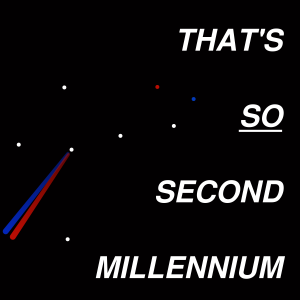
Monday May 06, 2019
Episode 058 – Let’s Act Like We’re on the Winning Side (Since We Are)
Monday May 06, 2019
Monday May 06, 2019
This ended up being an emergency episode Paul recorded solo, since Zencastr ate all but a few minutes at the beginning of each recording. There seem to be serious problems with Zencastr since Paul’s MacBook died and he had to resurrect his Windows laptop.
The Big Bang; cosmology seems to require a beginning, uncaused cause
Problems of mind; intellect / qualia, possibility of free will.
There is no materialist explanation of human intellect, only assertions of dogma and crude shufflings of the feet.
Ongoing occurrence of miracles, Lourdes medical board, Fatima, Shroud of Turin; Bob Schuchts
There are far too many miracles and supernatural phenomena that defy materialist explanation: Eucharistic miracles, healings at Lourdes and elsewhere, Fatima, demonic possession…
The testimony of the first Christian disciples requires absolutely crazy explanations that themselves defy our best science even if we reject the idea that Jesus rose from the dead.
The continuing existence and expansion of the Church in the face of persecution is likewise historically unparalleled, save only for the continued existence of Judaism.
Second of all, it provides perspective and healing for human problems that nothing else does.
John Warner Wallace from Breakpoint podcast; LAPD homicide officer
What has God done in my life... we GET to that, we don't start there like Mormons
Christianity provides a shockingly direct answer to the question of evil: the transcendent, all-good God is Himself willing to experience it.
The Christian faith continues to spread in Africa and Asia in the face of continued persecution, whether of the violent or of the brainwashing variety. Why is that?
The attempts of Western society to escape Christianity have made us amazingly miserable amid all our material possessions and security. Why do we so halfheartedly turn away from these distractions?
The most characteristic failing of our age, I would argue, is addiction, and addiction has evoked a powerful response in the form of the Twelve Steps. Although these Steps are deliberately offered to everyone with no attempt made to proselytize them to any specific religion—indeed many recovering addicts refuse to identify themselves as religious—nevertheless, the principles of the Steps are completely and suspiciously consistent with Catholic Christianity.
The Catholic intellectual tradition has a tremendously formidable intellectual structure, the most robust philosophical realism, an enormous storehouse of moral philosophy and psychological insight, and a wealth of stories of human drama in the lives of both saints and sinners.
Why do we slave along as intellectual second or third-class citizens in the modern world? I was just looking at the want ads of literary agents and realized that they are all blithely “progressive” members of the stumbling, bumbling cultural vanguard. Our culture is shaped by stories forged out of this nihilistic experience of forgetting an entire civilization’s worth of wisdom.
We are looking to help out at the Society of Catholic Scientists Conference this year, and are in talks about how we can do that. We’re really excited about working to create a greater sense of community among Catholic scientists!

Monday Apr 29, 2019
Episode 057 – The Best Thing Out There
Monday Apr 29, 2019
Monday Apr 29, 2019
Apologies for the sound quality today; Zencastr wasn’t working, so we recorded on Zoom, and even then there were problems with the audio especially in the latter half of the podcast.
The question we take up at the beginning of the Easter season is this: Why has Western society gone to such pains to throw away the best thing going, intellectually and otherwise?
In his ongoing podcast research, Paul has come across the Pat Flynn Show, and listened to some really good interviews with Fr. Robert Spitzer (a TSSM interviewee) and Ed Feser (whose talk at the 2018 Society of Catholic Scientists conference was the topic of one of our most popular episodes). Bob Spitzer’s interviews in particular were some of the most inspiring things I’ve encountered recently and really led me to propose this series of conversations with Bill about how Catholic Christianity is the best way of looking at the world.
Of course, Western society has drifted hard away from its roots in classical Greek and Jewish/Christian heritage. Ireland is the most recent example of a society, one of the last to retain a semi-traditional cozy relationship between the Church and the state, now deciding to punish the Church for the crimes of the hypocritical members of its clergy by trying to erase its very history. Progressivism in general replaces traditional dogmas with dogmas-of-the-day, and the record up to this point has been pretty dismal.
We spend some time discussing the roots of what the contemporary West seems to consider its greatest achievement, modern science, in the critical tradition of Scholasticism (knowledge of which was practically the first thing to go after the Reformation began the process of intellectually punishing the Church). We would do better to have a broader memory of the Scholastic tradition even among us Catholics...to recall that it was a movement in which Thomas Aquinas was embedded, rather than remembering only him. In our time as well we don’t need single hero figures, we need a community. The scientific community knows this very well.
We go on to consider what this fraught term “dogma” really means. The Christian dogmas are really testimony, and they can’t change without repudiating the unrepeatable testimony of the events of salvation history. This is the context of the warnings at the end of the Apocalypse of John, “cursed be he who adds or takes away from the words of this book.” As Chesterton and many others have pointed out, these dogmas are not a straightjacket but a foundation and structural members that allow us to build both intellectual structures and actual human lives that don’t sink into the morass of changing human inventions. Admittedly there are many Christians, Catholics included, who seem to take comfort in the false idea that the Bible, or Tradition, provides us all the answers we could possibly want to know and there is no need or use in further growth. That is not the teaching of Jesus when he commented that the Spirit would [future] lead us to all truth.
The high Middle Ages confronted the question of harmonizing Aristotle with Jesus Christ. This was both a creative and a logical process that led to great works of criticism and synthesis… excellent practice for the scientific process as we now know it.
A reminder that the Society of Catholic Scientists Conference is approaching June 7-9. Registration is open through May 15.
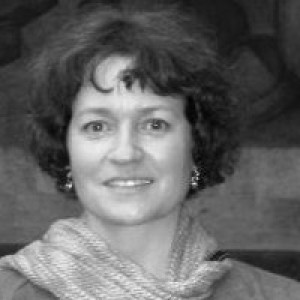
Monday Apr 22, 2019
Monday Apr 22, 2019
Today we present the second half of the interview with Darcia Narvaez, social scientist at Notre Dame and a specialist in childhood inculturation, attachment, and bonding issues.
We start out this half of the interview with a discussion of what Karl Polyani called the "great transformation" of European society, involving the breakdown of the pre-modern order and its safeguards for a stable population by means of understandings about community use of land, perhaps resulting in the popularity of emigration to the New World by dispirited, dispossessed, and to some extent dangerous people.
Several times Darcia disparages "hierarchy," understood in its general sense of social stratification, which she or other who have influenced her theorize to have caused huge social catastrophes, including the corruption of the Christian Church by its integration into the late Roman state and the collapse of populations and cultures in the New World on contact with the colonizers from Europe. Late in the podcast I ask her explicitly whether there is any benefit to civilization... let us know in the comments on Facebook or Podbean what you think about the answer!
Darcia's claim is that humans are by nature more egalitarian than other animals. This goes right down to childrearing, where human children, born so completely needy, have an innate expectation that their requests for assistance will be met. She comments that there is a Native American word, "wetiko," that was used to describe an attitude thought of as akin to a sickness that characterized those who acted in an aggressive and exploitative way toward others. Whether or not premodern peoples were all more free of this, it's certainly a common feature of civilized peoples. The Old and New Testaments certainly testify to this, and the need to confront it with compassion and an egalitarian attitude. We discussed the specific example of the disease of the large organization, society, business, or government, in which those at the top are simply disconnected, both intellectually and morally, from those at the bottom.
We mentioned subsidiarity, and might have mentioned clericalism... the social science of these concepts will hopefully be fodder for future podcasts.
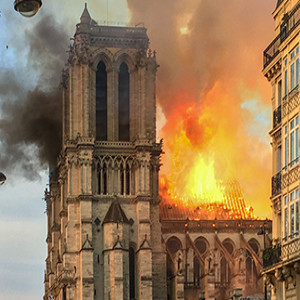
Friday Apr 19, 2019
Post Christian - What Are Churches For?
Friday Apr 19, 2019
Friday Apr 19, 2019
Photo by LeLaisserPasserA38 - Own work, CC BY-SA 4.0, https://commons.wikimedia.org/w/index.php?curid=78064310
I was minding my own business, trying to do a little work on my aunt's laptop while mine is in the shop, when I noticed this Washington Post article about 1) massive donations to repair Notre Dame de Paris after its roof caught fire on Monday, taking the 19th century spire with it, and 2) criticisms of the hyper-wealthy people who will open their checkbooks to replace a European landmark but not whatever other social causes the critics think most important.
My first thought on seeing the fire was simply, "How does this still happen?" Fires have of course consumed any number of cathedrals, palaces, temples, city halls, fortresses, and other buildings of note over the centuries, but we have an awful lot of fire suppressant and monitoring technologies these days. Repair work of some kind was already going on as shown by the scaffolding over the roof prior to the fire.
The article drew out a second line of thought that had been lurking in the back of my mind. France is of course the birthplace of modern Western secularism, the country where the hypocrisy of the Catholic Christian establishment yielded directly to the raging adolescent fury of revolution. It is where the modern pattern of punishing Christianity for the sins of the hierarchy and political establishment by pretending it never had any intellectual foundation was first constructed.
It's a mercy, in that environment, that so much of France's medieval legacy survived in the form of art and architecture. In a way it's good that the French opinion of their own culture is so staggeringly high. Yet these churches are so empty. When I visited France in 1998, I was deeply saddened by this. I wandered through many of these churches in Paris, Saint-Malo, Tours, and Amboise. The churches whose names you might recognize are kept up as museums; there are many, less famous, that are falling into decay even within towns like Amboise. The sprinkling of priests and faithful is spread across the remaining churches exceedingly thinly.
It all makes me feel a little better about our situation here in the United States. Still, when my local parish was holding its campaigns to rebuild the 19th century church and 1920s school building, I kept thinking, "I am glad that we can be this generous to repair roofs and redo tuckpointing... how about we put out this effort to fill these buildings with new people hearing the Good News about how Jesus can actually be in their lives after we rebuild them?"
I listened to two podcasts by Bishop Robert Barron and John Stonestreet of the Colson Center about the fire and how it has been discussed in the media. They commented that today's secular culture wants to focus on Notre Dame de Paris as simply a landmark, an icon of French culture, a pretty building from a long time ago. The desire seems to be to strip this structure of its builders' purpose: to construct a memorial to the transcendent human being whose death we commemorate today, and all the truths that come to us after recognizing him. A memorial place in which the True God, the Being upon which all reality is constructed and the Creator that constructed it, could be worshipped in that man's name.
To be fair, I think the culture of modern media does this to almost everything. We live in such a shallow time. When we confront memorials of centuries past, whether buildings like Notre Dame or books or works of art, we would do better to consider for a while why their makers did what they did and whether human beings with a different outlook on life have something to teach us, or to remind us.
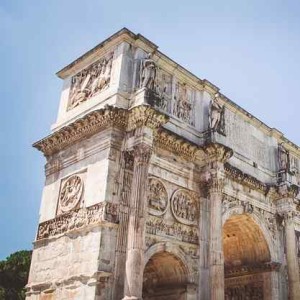
Thursday Apr 11, 2019
Post Christian: Money
Thursday Apr 11, 2019
Thursday Apr 11, 2019
Picking up some loose ends from the CNAG post of the same title. I remember the sense of brimming over with things to say when time and a change of focus from the personal to the social and political brought that post to a close, but very little has come back to me in the weeks since.
The core, in any case, and the reason why it calls for a Post Christian post, is the point that the Christian Church risks its integrity by the very fact of being a social institution possessing property and money. Reality dictates that even the persecuted Church has a certain quantity of resources (one thinks of the treasure that his persecutors thought to extract from St. Lawrence) but the legal and above all the official Church tends to accrue tremendous wealth. This wealth contrasts sharply and painfully with the life and teaching of its Founder, who commented that in his wanderings he owned no home (one thinks of the tent that long housed the Ark of the Covenant) and that it was easier for a camel to pass a needle's eye than for a rich man to enter heaven.
This contrast has motivated Christians to take action to restore the integrity, at least in their own personal lives, since before the time of Constantine. Antony went out into the desert, surely not the first Christian hermit but a supremely influential one. Francis, the little poor man, attracted legions of followers seeking authentic discipleship to Jesus, and war was waged for decades and centuries between those who tried to live as other religious did and those who tried to get as close as they could to the theoretical ideal of complete lack of property. The Reformation and the anticlerical Revolutions of the latter half of the second millennium stripped the Catholic Church and its religious orders particularly of their influence, position in society, and much of their wealth.
It seems to me that we are living in the last, dying days of the institutional Church (and Pope Benedict has gone on record in some of his books as thinking much the same). I hope that's the case, because there is something better waiting for us if we get more serious about taking the pieces of the Church we have been given and assembling them, brick by brick at the local level, into something more nourishing and authentic, more concerned for the poor and the needy (which includes not being satisfied with simply handing them material goods to get them through in a state of dependency).

Monday Apr 08, 2019
Episode 054 - TSSM Season 2
Monday Apr 08, 2019
Monday Apr 08, 2019
In this episode we roll out a new format for Season 2.
We recap Season 1 (April 2018 - March 2019) and the three focus areas of the podcast so far:
- Discussion of the fundamentals of the question whether it's reasonable to believe in both science and the Catholic Christian faith, and some exploration of particular topics, like the role of geology in the interpretation of the book of Genesis.
- Review and comments on the speakers at the Society of Catholic Scientists Conference 2018.
- Interviews with scientists and scholars living out their Christian faith, many of whom are actively trying to spread the truth that the presumed conflict between science and religion is false, born from shoddy understandings, strawman arguments, and reactions against hypocrisy. Three of these people (Patricia Bellm, Chris Baglow, and Jay Martin) do this work at the McGrath Institute for Church Life at the University of Notre Dame.
We then go on to discuss our plans for coming episodes, turning to topics of religion, spirituality, and psychology (including topics like child development and addiction) where the intersection of faith and science allows us to build new solutions or give tremendous new life to old solutions to the problems of human life.

Tuesday Apr 02, 2019
Post Christian: Ideals and Means
Tuesday Apr 02, 2019
Tuesday Apr 02, 2019
It's fascinating to me how well progressivism is explained by two aspirations:
- Trying to be more Christian, which is to say more kind, enlightened, truthful, and focused on what really matters in life, than Christians. (A common lie that progressives tell themselves is that Christians really aren't concerned about these things... they are of course aided and abetted by the large quantity of half- or quarter-hearted Christians out there.)
- Trying to do this really impossible thing without any recourse to a God that actually loves them or has any particular purpose for the world.
In reality, of course, something has to give, and that something is either the ideals or the means.
If the means break down, then the progressive is forced to give up on straight secularism and goes searching for some kind of enlightenment... possibly a form of post-Protestant Christianity (or post-Reform Judaism) that they can have on their own terms, or some kind of imported spirituality that can likewise be sampled cafeteria-style to get around whatever it might be in their life that they're not willing to let go: some sexual practice they insist is not only okay, but mandatory, or some pain they suffered at the hands of institutional Christians that they intend never to forgive the church or Church for allowing, etc. Still, this seems to me to be by far the better path. Part of the truth and the power that God gives to humanity, whether or not they know the name and the mission of Jesus of Nazareth, is better than none of it.
If the ideals break down, they seldom break down all the way. Unfortunately, the easiest thing to do is to sneer at other people, the rich and powerful but also the wife-beater-wearing Trump voters, for doing destructive things while making excuses for themselves. They continue to drive their SUVs an hour each way to work so they can live in their 3,000 square foot house in a neighborhood where they feel "safe," i.e., away from black folks. They may post something on social media about how horrible it was that so-and-so molested or sexually harassed people, while continuing to sabotage their own relationships via pornography, masturbation, or just generally refusing to confront their fear to engage in honest intimacy with friends or sexual partners or spouses or children.
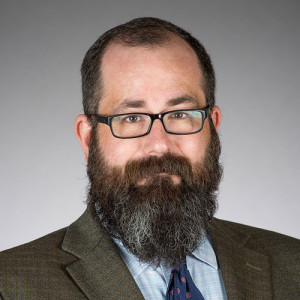
Sunday Mar 31, 2019
Sunday Mar 31, 2019
0:00 - The question of relativism vs. hyperrationalism
1:00 - God's love is not a "fact" but, say, hominid ancestry is
1:30 - Tapping into the belief in the rationality of science to bring back belief in reality in faith
2:30 - "Kicking in the back door of relativism"
4:00 - Linkages between theology, philosophy, and science: e.g. logical consistency
5:30 - Effects on the rest of schools that participate in the Science & Religion Initiative
6:30 - Encouragment to integrate, say, history, economics with faith as well
7:00 - Congregation for Sacred Doctrine 1977 "The Catholic School"
8:00 - Faith & literature, arts
9:30 - The true limits of dogma; need to understand how limited Catholic dogma really is, and how non-restrictive
13:00 - Teachers woefully overworked and underpaid, not given the ability to succeed
14:30 - Blessed to have excellent but also humble panelists & experts intending to listen to one another
19:00 - Story of the second & first editions of Baglow's textbook

